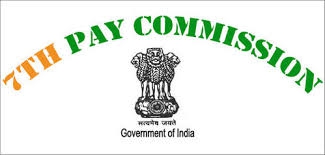Government may soon go the corporate way as it looks for alternatives for regular salary and allowances increment mechanisms for workers and pensioners.
The wait for revised salaries is over! Central Government employees will now get their salaries as per the 7th Pay Commission. About 48 lakh employees will receive increased allowances from July, 2017. However, the future looks a little different as the government is considering doing away with the pay commissions altogether, after the 7th Pay Commission.
The Government had reportedly issued a notification early last month, stating that Central Government employees are still dissatisfied with the revised allowances, and hence, this will be the last salary revision. The government is planning to not form any pay commission, henceforth. This means, there are no chances of the 8th Pay Commission.
This means, the Government may soon go the corporate way, as it looks for alternatives for regular salary and allowances increment mechanisms, for workers and pensioners. In fact, even the 7th Pay Commission Chairman Justice AK Mathur, was earlier of the view that the Central Government employees’ salary be revised every year taking into account the available data and price index.
Moreover, the pay commissions are extremely time taking, making the workers wait for almost ten long years for a salary revision, thereby putting a huge financial burden on the Government. Last year, Finance Minister Arun Jaitley had mentioned that the Pay Commission had put a burden of Rs 1.03 lakh crore owing to pay and allowances.
Meanwhile, most people still aren’t satisfied with the hike in their allowances under the 7th Pay Commission recommendations, putting an upward pressure on the authorities.
The House Rent Allowance (HRA), which constitutes a substantial part of the Central Government employees’ salaries, was cut down by the 7th Pay Commission, bringing it down to 24 per cent, 16 per cent and eight per cent of basic pay. The 6th Pay Commission, on the other hand, had recommended HRA at the rate of 30 per cent, 20 per cent and 10 per cent for various categories of cities.
This time as well, the Central Government employees’ unions had demanded a hike in HRA at the rate of 30 per cent, 20 per cent and 10 percent of basic pay.
While there may be various other reasons why employees aren’t too happy with the 7th Pay Commission’s decisions, the entire existence and frequency of the pay commissions seems outdated in the modern times.
A Pay Commission is set up intermittently by the Government of India, to provide suitable recommendations about changes in salary structure of its employees. Since India’s Independence, seven pay commissions have been set up on a regular basis to review and make recommendations on the work and pay structure of all civil and military divisions of the Government of India.
The first pay commission was setup in 1946, the second in 1957, third in 1970, fourth one in 1983, the fifth in 1994, sixth in 2006 and finally the current one – the 7th Pay Commission— was established in February, 2014. As per the rule, the Commission is given 18 months from the date of its constitution to make its recommendations.
However, the gap of years in between the various pay commissions, and the time taken for the decisions or recommendations to come out and get implemented is certainly a cause for concern. In addition, a regular alternative for salary and allowances revision may also keep people motivated to perform better.




1 Comment
Please know me HRA & TA for Assit, Teacher ( B, Ed,) in 4th pay commission in Maharashtra government between June 1997 to July 1999